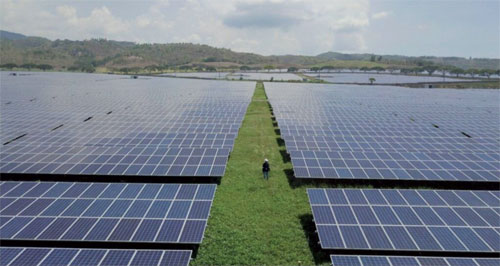TWO years into the pandemic, one of the industries that continues to face the toughest challenges is retail. While operations of businesses offering basic necessities are unhampered even in the strictest lockdowns, the virus has virtually forced industry players, big and small, to adjust operations, rewrite their business plans and like everyone else, learn to live with the new coronavirus disease 2019 (COVID-19).
Rosemarie Ong, president of the Philippine Retailers Association (PRA), said the industry is not just confronted with the push and pull of demand associated with the restrictions and diminution or loss of jobs, but is also faced with the technological changes in the way retail is being done. The passage recently of the amendments to the Retail Trade Liberalization Act that further relax the requirements for foreign players poses another challenge to the sector.
Ong, who was at the retail’s biggest show organized by the National Retail Federation in New York City on January 16 to 18, said topics discussed at the event foretells the future of retail.
From digital transformation and omnichannel to virtual reality and artificial intelligence, topics have transcended to this phenomenon called Metaverse.
Ong sees interruptions like the Omicron would continue to plague the economy, and retail particularly, as the country lives with the virus…(But) like a rollercoaster, retail will just have to ride out the highs and lows of business.
The possible creation of shopping sites, malls and stores in the Metaverse is something unimaginable pre-COVID and could take years to develop. But talking about it now only highlights how even in retail, virtual would someday meet reality.
Ong, who is senior vice president of home improvement and construction suppliers retailer Wilcon Depot Inc., shared how their company went hybrid early into pandemic launching an online shop while continuously improving and expanding their brick and mortar stores.
“The business we are into was declared essential and we had to find ways to reach our customers,” she added.
Ong said social issues have also been hot topics at the retail show, going beyond environment-consciousness but also delving on DEI or diversity, equity and inclusion, issues that are also beginning to be ingrained in the minds of Filipino retailers and consumers.
According to Ong, the liberalization of retail would definitely impact small and medium enterprises (SMEs) which would be competing hard with foreign investors who have deeper pockets and advance technologies in their process.
But Ong counts on the familiarity of SME retailers with the Filipino consumer as their best weapon against competition.
“ I would call out our SMEs to capitalize on their strong connection and understanding of the market as they have a better sense of the terrain or the behavior of the market. They should offset it with excellent service and experience,” Ong added.
Ong believes the Filipino retailer would continue to thrive just as the Filipino consumer will continue to consume.
And it happened.
The so-called revenge retail was seen towards the end of 2021, just in time for the Christmas season, when Filipinos went out to shop, eat out and travel. This was, however, cut short by Omicron.
“ I would call out our SMEs to capitalize on their strong connection and understanding of the market as they are have a better sense of the terrain or the behavior of the market. They should offset it with excellent service and experience”
“Nobody cared until Omicron came. Everybody was out and practically all establishments were open,” she said.
Ong sees interruptions like this would continue to plague the economy, and retail particularly, as the country lives with the virus.
Omicron happened at a traditionally slow period of the year. Still, some retailers especially those in non-essential sectors, are bleeding.
Ong said the PRA continues to advocate for government assistance especially for MSMEs to cope with the pandemic. The group also continues to appeal to landlords for some reprieve in rentals and common use service area fees.
These days, Ong said, the Filipino consumer is focused on the basics like food and health and wellness. On better days, he ventures out to the mall or dine in a restaurant.
Depending on the restrictions, he would even travel.
Like a rollercoaster, retail will just have to ride out the highs and lows of business.




